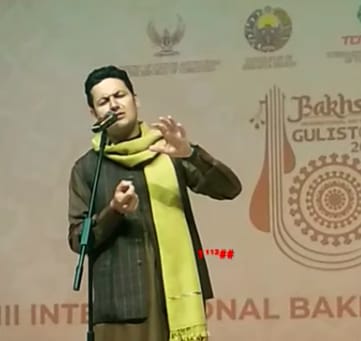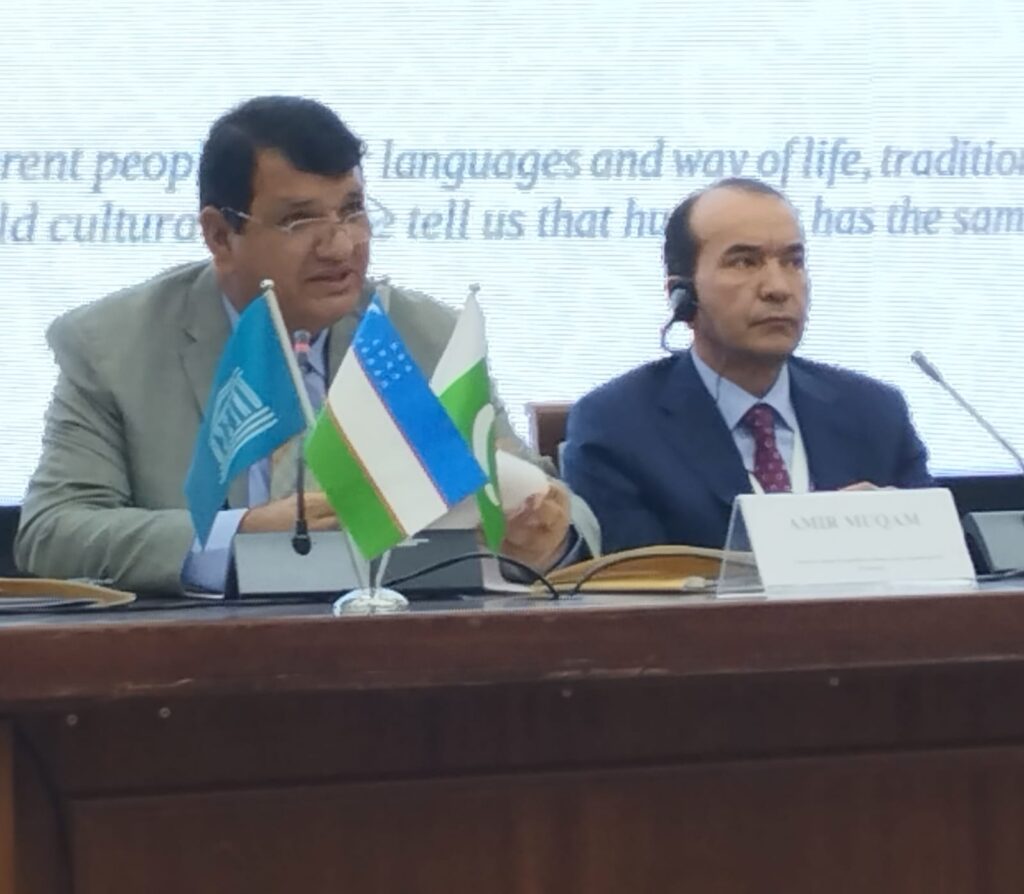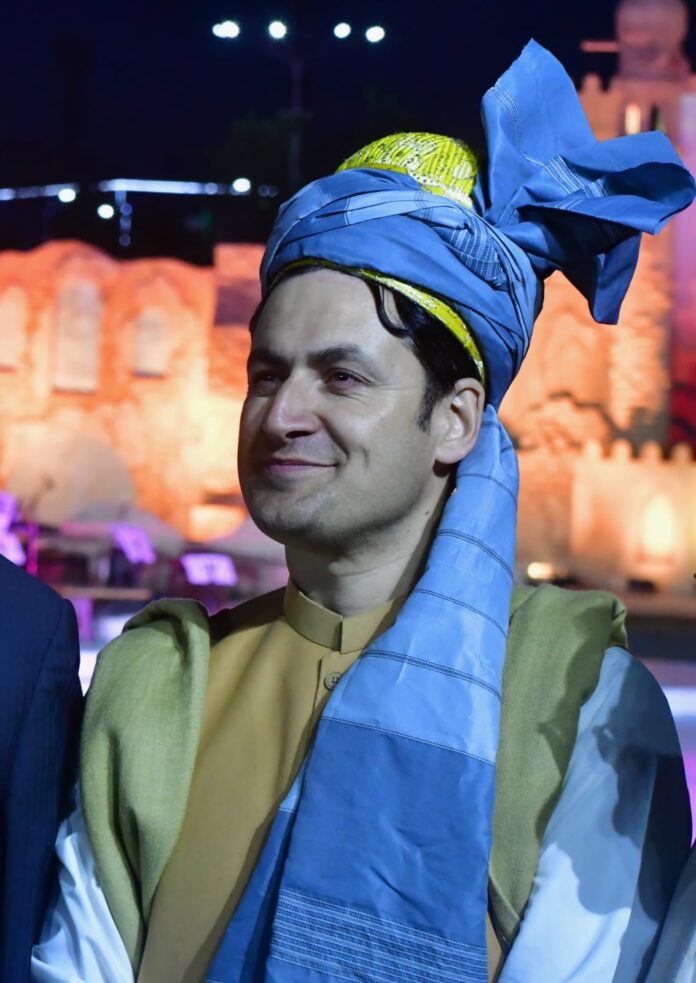By Gareth Stamp
Uzbekistan is a country wrestling with its past and its future. Ancient historical cities where
heroes such as Alexander the Great and Timerlain walked the same smooth worn
pavements as today’s tourists, need preserving, yet the country is also caught up in a
headlong rush to modernity and globalisation. The balance between the demands for
tradition and future are truly polarised here. It is not only the physical mausoleums, palaces and silk road fortresses that could be at risk but also the non tangible heritage too. The folk literature which often combines with traditional music – known here as Bahkshi – is a very important part of historical culture and is even recognised by UNESCO. Storytelling, singing and in the past even rallying the troops into battle was a skill, with works passed down between masters of the art. Until very recently much of the work was not written down and it is unimaginable how much of this aural cultural history has been lost over the centuries.
 However today there are enthusiastic academics, scholars and performers from across the Turkic countries and beyond that are trying to maintain and reclaim the heritage. Unesco has recognised the non tangible cultural art form and in Guliston City, the capital of the Syrdarya region, in Uzbekistan the third international conference on the contemporary art of Bakhshi – ‘A new sound of the Golden Heritage’ was held over three days in the first week of May 2023. Alongside the conference an international Bakhshi competition was held Musical performers from more than 40 foreign countries and international organisations have gathered to showcase their talents at the festival. 64 performers, including ten local and 54 foreign artists, were selected from over 300 participants. Representing Pakistan was Afsar Afghan, the famous performer and journalist.He said “Culture is deep rooted, more than any other relationship, let’s spread the beauty of diverse cultures!”
However today there are enthusiastic academics, scholars and performers from across the Turkic countries and beyond that are trying to maintain and reclaim the heritage. Unesco has recognised the non tangible cultural art form and in Guliston City, the capital of the Syrdarya region, in Uzbekistan the third international conference on the contemporary art of Bakhshi – ‘A new sound of the Golden Heritage’ was held over three days in the first week of May 2023. Alongside the conference an international Bakhshi competition was held Musical performers from more than 40 foreign countries and international organisations have gathered to showcase their talents at the festival. 64 performers, including ten local and 54 foreign artists, were selected from over 300 participants. Representing Pakistan was Afsar Afghan, the famous performer and journalist.He said “Culture is deep rooted, more than any other relationship, let’s spread the beauty of diverse cultures!”
It was a chance for performers to share their music and storytelling with each other and the wider public and the locals also revelled in the chance to take photos with Kimono clad
singers from Japan, Sarong wrapped musicians from Indonesia, Bulgarian women in
traditional clothes draped in golden coin jewellery, and of course the Kazakhs, Kyrgyz and
Uzbeks in Shapans and Ak Kalpak added to the colour. It was a great honour for me, as
Chairman of the Eurasian Creative Guild , to represent Great Britain although at times I felt
very underdressed! The pageantry was further highlighted by an epic performance of Uzbek
and Turkic culture. Over 300 dancers from the local universities joined professional singers
and artists in a nonstop riot of colour music and performance that thrilled the crowds and
even got the visiting dignitaries on their feet dancing.
 The conference itself was an opportunity to outline what Central Asian nations are doing to
The conference itself was an opportunity to outline what Central Asian nations are doing to
uphold the tradition and to promote it around the world. The conference was opened by the
Uzbek Minister of Culture Nazarbekov Ozodbek Akhmadovich. and supported by the Adviser
to Prime Minister for Political and Public Affairs, National Heritage and Culture Engr Amir
Muqam.He stressed on enhancing bilateral cultural relations and economic ties in all sectors
between Pakistan and Uzbekistan. Amir Muqam also said that Pakistan and Uzbekistan are
interlinked in culture, history and beautiful cultural heritage.
Following two days of presentations and delivery of academic papers a resolution was
passed to include the revival of Bakhshi Art in creative schools,and importantly the recording and cataloguing of current Bakhshi performers by using new technology to develop an international archive and use this to promote the Bakhshi arts.
The results of the competition saw accolades and prizes being awarded at an open air public performance bringing the proceedings to a dramatic close.






